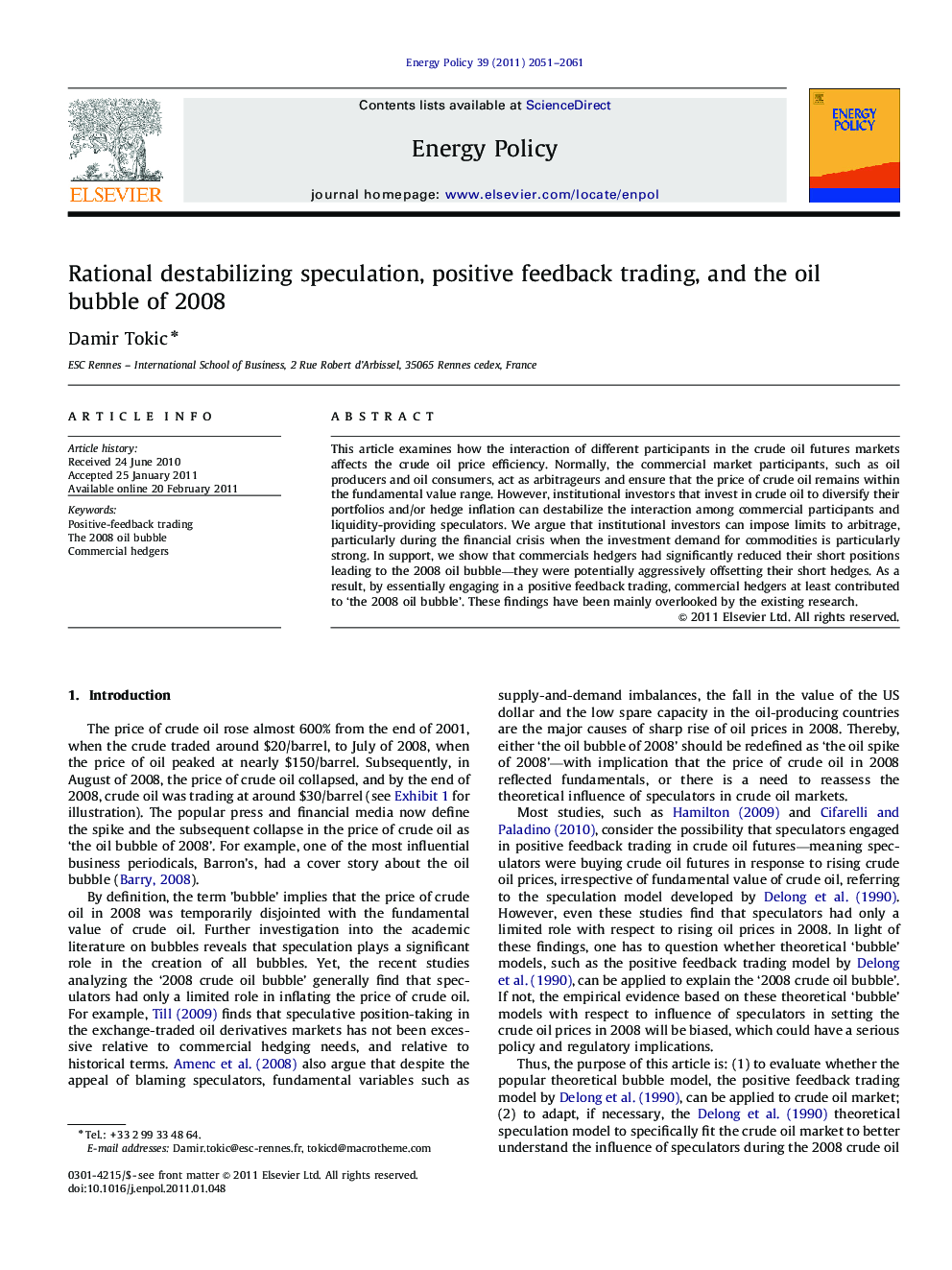| کد مقاله | کد نشریه | سال انتشار | مقاله انگلیسی | نسخه تمام متن |
|---|---|---|---|---|
| 993124 | 936022 | 2011 | 11 صفحه PDF | دانلود رایگان |

This article examines how the interaction of different participants in the crude oil futures markets affects the crude oil price efficiency. Normally, the commercial market participants, such as oil producers and oil consumers, act as arbitrageurs and ensure that the price of crude oil remains within the fundamental value range. However, institutional investors that invest in crude oil to diversify their portfolios and/or hedge inflation can destabilize the interaction among commercial participants and liquidity-providing speculators. We argue that institutional investors can impose limits to arbitrage, particularly during the financial crisis when the investment demand for commodities is particularly strong. In support, we show that commercials hedgers had significantly reduced their short positions leading to the 2008 oil bubble—they were potentially aggressively offsetting their short hedges. As a result, by essentially engaging in a positive feedback trading, commercial hedgers at least contributed to ‘the 2008 oil bubble'. These findings have been mainly overlooked by the existing research.
Research Highlights
► This article finds that commercial hedgers at least contributed to the 2008 oil bubble.
► Commercial hedgers were aggressively offsetting their short hedges leading to the oil bubble peak.
► Commercial hedgers, thus, unwillingly engaged in positive feedback trading.
► Institutional investors potentially destabilized the oil markets in 2008.
Journal: Energy Policy - Volume 39, Issue 4, April 2011, Pages 2051–2061